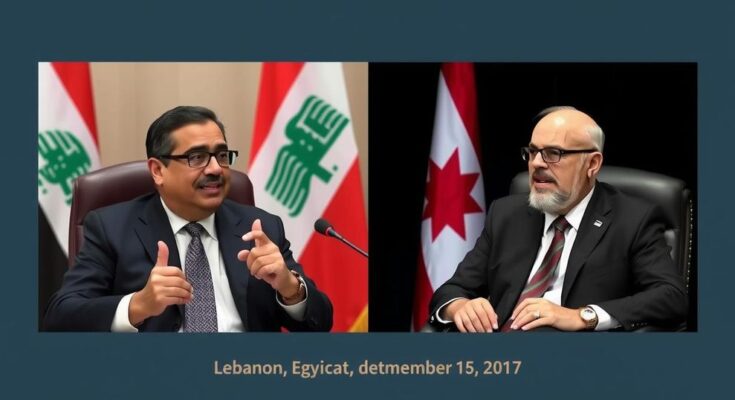On January 5, 2025, the Egyptian and Lebanese foreign ministers discussed Lebanon’s upcoming presidential election, emphasizing national consensus without external intervention. They also addressed Syria’s political situation, highlighting the need for a Syrian-owned transition. The Lebanese parliament will hold a presidential election session on January 9, 2025, amid significant internal challenges.
On January 5, 2025, Egyptian Foreign Minister Badr Abdelatty engaged in a telephone conversation with his Lebanese counterpart Abdullah Bou Habib regarding the pressing political situation in Lebanon as the parliament prepares for a presidential election. Minister Abdelatty stressed the importance of collaborative efforts among domestic parties to foster a complete Lebanese consensus aimed at resolving the current presidential vacancy, without any external interference.
The discussion also encompassed the complex political and security landscape in Syria, where both ministers underlined the necessity of acknowledging the Syrian people’s desires while preserving the nation’s unity and sovereignty. They concurred that the political transition in Syria must be led by the Syrian people themselves, devoid of foreign imposition.
The Lebanese Parliament is scheduled to convene on January 9 to elect a new president in light of ongoing political tensions, particularly following the ceasefire recently established between Israel and Lebanon after a prolonged period of conflict. Since former President Michel Aoun’s departure from office in October 2022, Lebanon has remained without a president, provoking concerns over governance and internal stability amidst an intensely divided political framework.
As Lebanon approaches its parliamentary session for the presidential election, the country has been experiencing a significant political crisis marked by numerous challenges, including a void in leadership following Michel Aoun’s departure from office. According to Lebanon’s National Pact, the presidency must rotate among religious sects, with the president and military commander required to be Maronite Christians, highlighting the delicate balance of power within the nation. Simultaneously, Lebanon continues to face the implications of recent military actions involving Israel and Hezbollah, further complicating its internal political landscape.
In conclusion, the dialogue between the Egyptian and Lebanese foreign ministers signifies a proactive approach towards stabilizing Lebanon amid its presidential vacancy and emphasizes the importance of national consensus devoid of external influence. Moreover, with Lebanon’s imminent presidential elections, the responsibility of unifying the country lies primarily within its own political factions, particularly in light of regional tensions that continue to challenge its sovereignty and governance.
Original Source: www.egypttoday.com




